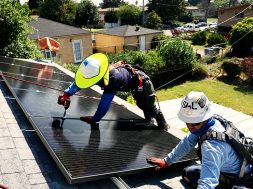
Government schools lead in sun-charging the grid
CHANDIGARH: Government schools in Chandigarh are leading the charge when it comes to generating solar power. With 64 schools in the city having rooftop solar plants, the annual power generation at these buildings is 32.6 lakh kW -equal to reducing 226 metric tonnes of CO2 during the same time, or planting 2.44 lakh trees in a year.But that’s not all. This form of renewable energy has also been saving money for them, and that too in lakhs.
Here’s an example: Government Model Senior Secondary School for Girls, Sector 18, has not been paying its electricity bills of late. In fact, the electricity department owes Rs 38.25 lakh to it.This is because the electricity produced by the rooftop plant installed on the school’s premises, is supplied to the city’s power grid. The best part is that such plants are being installed at another 18 schools.
The story of GMSSS-18 is not an isolated one.
Government High School, Sector 53, also has its power bills in the negative. The UT department owes Rs 1.43 lakh to it and another Rs 7.93 lakh to Government Model Senior Secondary School, Sarangpur. In some schools, solar plants have installed either under net metering or under gross metering. Under net metering, solar energy generated is first consumed locally in the respective building loads and the excess, if any, is exported to the grid.In gross, all electricity generated goes to the grid and school doesn’t use it. Schools get paid for all units they send to the grid.
The installation of these solar panels has not had any adverse impact on the school buildings, accoridng director school education Rubinderjit Singh Brar. “Most of the solar panels are not visible from the ground level ei ther,” Barar added, during a recent meeting of different states in Chandigarh last week. All Government Schools have modern concrete and multi-storied buildings in Chandigarh, with sufficient rooftop space for solar power generation. “The project has reduced power bills; now, these savings can be use for other useful purposes,” he added.
Officials said all government schools in the city will have solar power plants by the end of 2018. No expenditure (initial cost running cost) is borne by the school education department.Chandigarh Renewable Energy and Science and Technology Promotion Society (CREST) -under the aegis of the UT department of science and technology & renewable energy -is acting as the project execution agency for installing solar plants. Including the 64 schools, there are 159 solar plants installed at government buildings in Chandigarh.











